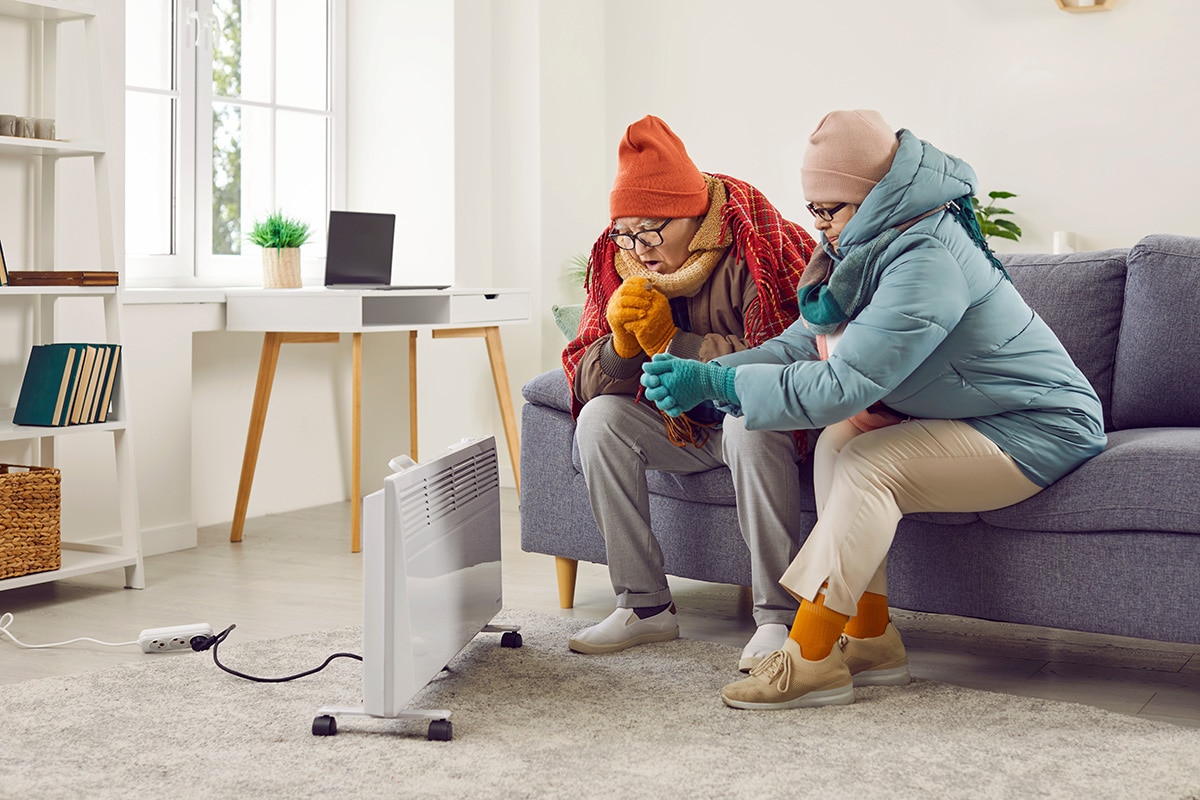An Auckland client living in a typical 1980’s brick and tile home was shocked when their first winter power bill exceeded $500 per month. Like many households, they faced the uncomfortable choice between warmth and financial strain. After consulting with our team, they first installed a smart thermostat – a relatively small investment that immediately reduced their energy bills by 15% while maintaining the same comfort level. Next, they installed a heat pump system, resulting in a 40% drop in winter power consumption while keeping their home consistently warmer.
Warm homes use less power than you think
One of the biggest misconceptions is that keeping your home warm is expensive. In reality, a well-heated home with properly configured systems often uses less power than one where people constantly toggle between freezing and overheating.
The heat pump magic: Five units of warmth for the price of one
Heat pumps are fundamentally more efficient than traditional electric heating. Resistive heating has a 1:1 energy conversion – one unit of electricity produces one unit of heat. Heat pumps can deliver three to five units of heat for each unit of electricity consumed because they transfer heat rather than generate it.
A common mistake is running heat pumps constantly. When we visited a family home in Remuera, they were running their heat pump continuously but still experiencing cold spots and high bills. Even advanced heat pumps running at full capacity all day will underperform and fail prematurely.
Strategic configuration is crucial:
- Set the appropriate heating mode rather than Auto mode, which wastes energy by constantly switching between heating and cooling
- Maintain consistent temperatures (18-21°C) rather than frequent extreme adjustments
- Use timer functions to warm spaces only when needed
- Utilise lower fan speeds for maintaining temperature once rooms are warm
- Adjust airflow vanes to distribute heat evenly, preventing hot and cold spots
The perfect temperature from the couch
We installed a zoned ducted heat pump system with smartphone control. The system learns your preferences for each room, automatically warming the home office during work hours, preparing the living room before you finish work, and creating ideal sleeping temperatures at night. The ducted system remains hidden with only stylish vents visible, preserving aesthetics while delivering consistent, draft-free warmth.
Results were immediate: 25% reduction in energy consumption while enjoying a consistently warmer, more comfortable home. The system even reminds them when to clean filters, ensuring optimal year-round performance.
The dirty filter disaster (and the three-month fix)
We recently visited a home where the owner complained of poor heat pump performance and high bills despite minimal use. The issues were dirty filters and the wrong mode settings.
Circulated air passes through fine mesh filters inside heat pumps. When blocked, the heating function works much harder to achieve the same result, consuming significantly more power. The homeowner was also unaware that Auto mode dramatically reduces efficiency.
Our technicians cleaned the system, set it to the appropriate Heating mode, and showed the homeowner basic filter maintenance every three months. Their most recent winter bill was significantly lower despite the home being consistently warmer.
Your warm, efficient future starts here
Modern heat pump technology, when properly installed, maintained and configured, offers remarkable efficiency compared to older heating methods. Combined with smart home technology and strategic usage patterns, results can transform both living experience and energy consumption.
Don’t assume staying warm means spending more on power. With the right approach, your comfortable, cosy home might actually use less energy than your previously cold one.
Do you need advice on your heating system? We regularly conduct site visits to advise on heating solutions, with recommendations varying based on your budget and building constraints. Give us a call – one of our experienced electricians can book a time to come to you. Contact us here.
